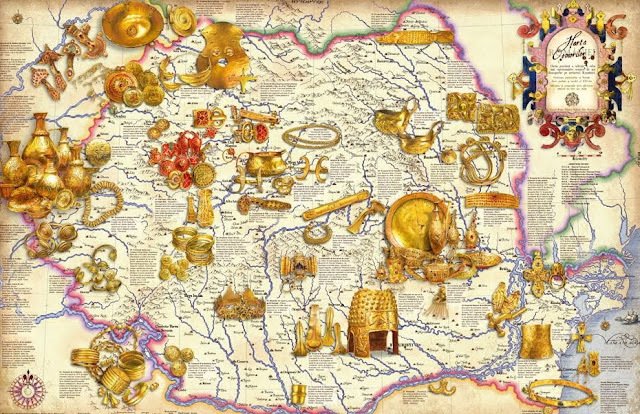Fearing an eventual German victory during World War I, the Romanian government decided to send the Romanian National Treasures abroad for safekeeping. Places on their list were the vaults of the Bank of England or even the United States.
There was, however, the problem of transportation. Germany and its allies controlled most of Central Europe and sending it via Northern Europe was extremely risky, as the Germans could have intercepted it.
Eventually the deal was made with Russia. The Russian government agreed that Russia would keep the Romanian Treasures safe in the Kremlin until the end of the war. During the early morning hours of December 15, 1916, a train with 21 carriages filled with gold bars and gold coins (around 120 tonnes, worth $1.25 billion in 2005), departed eastward. In the summer of 1917 another load was sent to Moscow, this time containing the most precious objects of the Romanian state. It exceeded the value of the first train load.
Early in 1918, the new Soviet government severed all diplomatic ties with Romania and confiscated the Romanian treasure. All the governments of Romania since World War I have tried to no avail to negotiate the return of the gold and culturally valuable objects. To this day, no further advances have been made.

Hi! I am a robot. I just upvoted you! I found similar content that readers might be interested in:
https://en.wikipedia.org/wiki/Romanian_Treasure